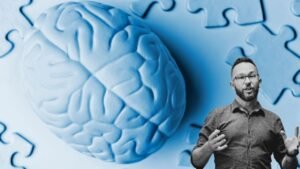Leadership training has long been a key to organizational success. But as the business landscape shifts, traditional methods like in-person workshops and generic online courses face new challenges, particularly the need for more personalization, scalability, and efficiency. Enter Artificial Intelligence (AI), a transformative force reshaping how we prepare leaders. With AI technologies such as machine learning, deep learning, and generative artificial intelligence, leadership development is undergoing a significant transformation. So, what does this change look like in practice? Let’s explore some practical insights and examples.
The Evolution of Leadership Training

Leadership development has experienced a remarkable evolution over the years. Traditional training methods, such as workshops, seminars, and mentorship programs, have long served as the backbone of leadership learning, offering invaluable experiences and fostering generations of successful business leaders. These approaches have effectively cultivated countless capable leaders, providing essential human connection and experiential learning opportunities.
As organizations become more intricate and diverse, leadership development has naturally adapted to integrate new technologies. AI tools now enhance traditional methods by analyzing data to deliver insights tailored to each leader’s unique profile. This data-driven approach allows for personalized development pathways, addressing specific growth areas while building on existing strengths.
The integration of AI adds significant benefits to leadership development programs. Organizations can now deliver consistent training across various locations and departments without compromising quality. When AI-generated insights align with business strategy, companies cultivate leaders equipped to tackle modern challenges. This technological advancement supports strategic decision-making and promotes continuous learning.
Today’s most effective leadership development programs often combine time-tested traditional methods with innovative AI-driven techniques. This blend respects the enduring value of human connection in leadership while leveraging technology to provide deeper insights and broader reach, creating comprehensive training suited for today’s complex business environment.
Case Study: IBM
Take IBM, for example. They’ve tapped into their AI platform Watson to supercharge their leadership strategies. Watson dives into employee performance data, giving business leaders practical applications to make informed calls on promotions and talent development. It’s a real-world example of how AI concepts can enhance decision-making processes and drive positive outcomes—proof that artificial intelligence in leadership isn’t just a buzzword, it’s a game-changer.
How is AI used in leadership?

AI excels at analyzing vast amounts of data and spotting patterns with a precision that surpasses human capabilities. By harnessing AI, organizations can minimize or even eliminate the influence of a leader’s mental state, background, and personal biases. This positions AI as a vital tool in strategy and decision-making.
For example, AI can sift through complex data sets to uncover hidden trends and provide strategic insights that help leaders make informed decisions. Additionally, AI-driven systems offer objectivity that reduces biases, ensuring leadership strategies align with organizational goals rather than personal preferences.
As highlighted in Elaine Montilla‘s LinkedIn article titled “The Human Edge: Leadership Skills AI Can’t Replace,” she emphasizes that no matter how advanced AI becomes, there are aspects of leadership that simply cannot be replicated.
How AI Is Impacting Leadership Training Development

AI’s Role in Personalizing Leadership Development
AI in leadership training is fundamentally about personalization. Leveraging machine learning and generative AI, it evaluates feedback on leaders’ performance, identifies their strengths and weaknesses, and creates customized learning plans. This data-driven approach ensures leaders concentrate on areas they need to develop, enhancing their leadership skills and overall effectiveness. Imagine an AI leadership course that adapts to your specific needs—pretty cool, right?
Take Reaktor’s AI-driven leadership programs, for example. These innovative initiatives use real-time feedback and data analysis to tackle the unique challenges faced by today’s executives. According to case studies, senior leaders who engage in such programs often gain actionable insights that significantly boost their confidence in navigating AI-related complexities—putting practical leadership skills into motion.
Expert Insight:
“AI has the potential to democratize access to high-quality leadership training by making it more accessible and personalized,” says Dr. Rachel Morrison, a leading voice among industry experts in AI and leadership development. “But here’s the catch: we’ve got to design AI systems with ethical considerations in mind—think data privacy and avoiding biases—to keep things fair and square.”
Simulation and Scenario-Based Learning with AI
Then there’s the magic of AI-powered simulations. These bad boys replicate tricky real-world scenarios, letting leaders practice decision-making in a safe space. Whether it’s conflict resolution or customer experiences, leaders get instant feedback to refine their approach—no real-world consequences required. Companies like IBM and Google are already embracing these innovative solutions to elevate their decision-making and leadership development strategies. Think of it as a dynamic sandbox—where practical skills are honed, powered by a touch of deep learning and AI-driven insights.
Data-Driven Insights for Leadership Growth
AI’s knack for crunching vast amounts of data is a goldmine for identifying leadership competencies. By sifting through job descriptions, employee feedback, and more, AI tools streamline the process of pinpointing essential skills. This isn’t just about individual growth—it’s about aligning leadership training with organizational goals. Harvard Kennedy School backs this up, showing how a data-driven approach can transform leadership artificial intelligence into a strategic asset.
AI Enhancing Emotional Intelligence
Soft skills like communication, empathy, and psychological safety? AI’s got that covered too. Through simulations and role-playing powered by generative artificial intelligence, leaders can practice emotional intelligence in a controlled environment. AI offers personalized coaching—think of it as your own executive education sidekick—helping leaders navigate complex interpersonal dynamics with confidence.
Humu’s AI-powered Nudge Engine, for example, analyzes workplace data and dishes out tailored suggestions to boost team dynamics. Leaders using it report better team cohesion and morale—real-world wins right there.
However, it’s important to remember that AI should not be a replacement for real human intelligence, as the nuances of human interaction and decision-making are irreplaceable.
Streamlining Efficiency and Reducing Costs
AI can significantly streamline leadership training by automating many of the routine tasks. This includes everything from developing training materials to organizing sessions and monitoring progress. By automating these processes, AI allows trainers and leaders to dedicate more time to essential activities such as coaching and mentoring. Additionally, with the use of generative AI, organizations can reduce costs while maintaining high-quality training programs. This approach not only enhances efficiency but also enables companies to allocate their resources more effectively, ensuring a transformative impact without overspending.
Challenges and Ethical Considerations
AI’s transformative potential is not without its challenges. Issues such as algorithmic bias and an over-reliance on cutting-edge technologies can pose significant risks if not managed carefully. This is why ethical AI usage is crucial—ensuring transparency in AI processes and maintaining strong data privacy measures is essential. Industry experts emphasize the need to balance AI’s strengths with human judgment to craft effective leadership strategies and prompts. Regular audits and the use of diverse datasets can help mitigate bias, while fostering adaptability ensures that leaders can effectively harness AI without losing the invaluable human touch.
Recent Statistics
An article from Development and Learning in Organizations (2025) explores the transformative impact of AI on leadership and management development, highlighting measurable gains in managerial effectiveness and decision-making performance.
Survey Insights
Here’s a quick look at how organizations rate AI’s impact on leadership training, based on a 2023 survey from the International Journal of Business Administration:

It’s clear AI’s making waves across the board.
What is the future of leadership with AI?

The future of leadership will be AI-augmented, and those who fail to adapt may find themselves obsolete. Leaders who embrace AI’s transformative potential will be better positioned to harness new opportunities and drive innovation. However, while embracing augmentation may be transformative, leaders must not overlook the enduring value of human attributes—a point emphasized in a 2025 Forbes article on AI and leadership.
The goal should be to enhance, not replace, human qualities such as empathy, creativity, and ethical judgment, which remain crucial in leadership roles.
By integrating AI with these essential human traits, organizations can cultivate leaders who are not only technologically savvy but also emotionally intelligent and ethically grounded.
So, What’s the Takeaway?
AI in leadership training whether it’s artificial intelligence in leadership or leadership artificial intelligence is reshaping how we develop leaders. From personalization and simulation-based learning to data-driven insights and soft skills growth, AI-driven solutions are equipping leaders with the tools to thrive. Sure, there are challenges, but with ethical considerations in place, the opportunities outweigh the risks. As organizations embrace this digital transformation, they’re not just preparing leaders for today they’re setting them up to lead with confidence in tomorrow’s ever-evolving business landscape.

A trailblazer in humanising leadership and building high-resilience teams. As a former United Nations Peacekeeper, he leverages his high-stakes experience to redefine leadership dynamics. With a career distinguished by numerous accolades, Joseph now helps organizations thrive through a human-centric approach, enhancing performance, productivity, and workplace culture.







